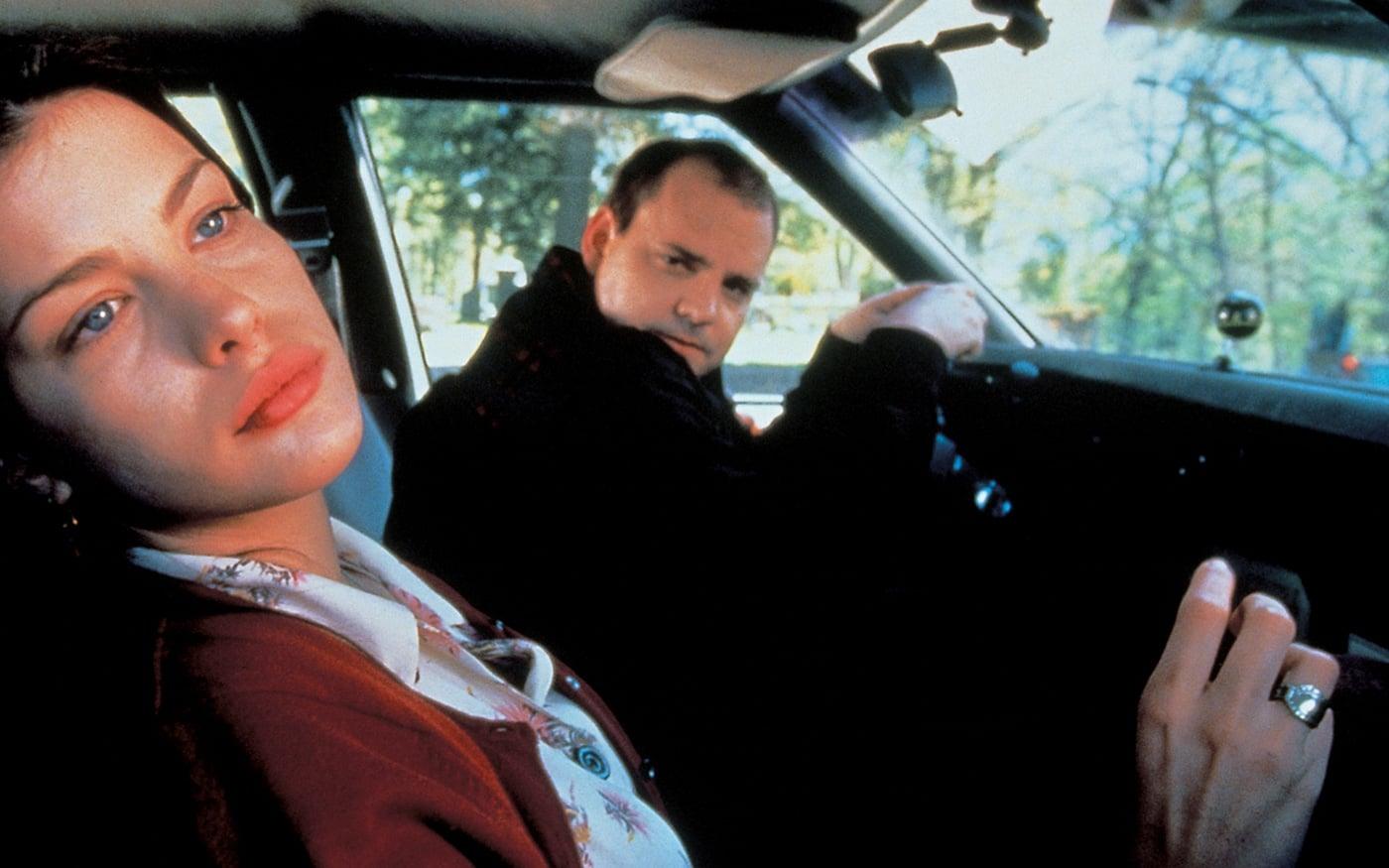Heavy by James Mangold (Review)

I suddenly realized that I didn’t rent a lot of pleasant films for my Memorial Day Movie Marathon. I’m not much of a fan of comedies and silly pictures to begin with, but it certainly seems like I rented more than my fair share of well, “serious” films. Films where good doesn’t always triumph, the boy doesn’t always get the girl, and all is not always right with the world. Go ahead and add Heavy to that list.
On the surface, Heavy is a film about loss and unrequited love. But there are plenty of times where it gets a little more sinister than that. Our “hero” is Victor, the overweight cook in a greasy spoon in some small town. He spends all of his time making pizza, taking care of his mother (who owns the restaurant), and dealing with loneliness.
One day, Callie (Liv Tyler) walks in and applies to be a waitress. Victor is immediately smitten; Callie is beautiful and caring, and treats Victor with true affection. But when Victor’s mother has to go to the hospital, Victor’s world starts to crumble. Callie is the only bright spot in his life, but even she may be slipping away from him. Victor wants to reach out to her, especially as her relationship with her boyfriend begins to sour, but his attempts are halting and all too painful.
What makes this film so unpleasant, and yet so riveting, is its honest treatment of the story. I hope this doesn’t spoil the movie for you, but Victor doesn’t end up with Callie; they don’t end up running off together, hand in hand. True love doesn’t triumph over all, because this isn’t a romantic film. However, I’d hesitate to call this a pessimistic film. A brief glimpse of hope does come through at the end, enough to let you know that things will eventually be alright.
The most interesting aspect of this film is, not surprisingly, the evolution that Victor’s feelings undergo. At first, they’re innocent enough. But certain scenes occur where his feelings take a darker, more obsessive twist. Victor starts to see Callie everywhere, and it’s hard to tell if such visions are simple daydreams or something a little more sinister. To Victor’s credit, even he’s troubled by the intensity of his feelings. It’s not that he’s a bad guy, but more that he’s never had feelings like these and doesn’t know how to handle them.
Populating Heavy’s universe are all manner of unsavory characters. Or rather, like Victor, they’re all downtrodden. Life has dealt many of them a bad hand, and they’re doing the best they can. They seek relief in alcohol and cheap relationships. Callie is Victor’s chance at happiness, but he’s such an emotional cripple that he doesn’t know what to do. Pruitt Taylor Vance conveys Victor’s sadness perfectly, with his sunken features, shuffling walk, and shifting eyes always on the verge of tears.
It’s easy to want to cheer for Victor, to want him to end up with Callie. But such an ending would’ve been fake enough to make you gag. The film isn’t happy, but it’s not artificial either. Although some would argue that movies should always be an escape, that’s not Heavy’s goal. And I, for one, am thankful for that.
